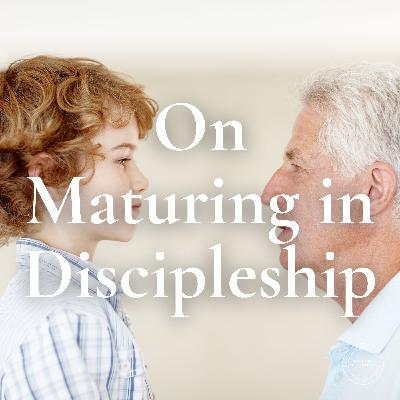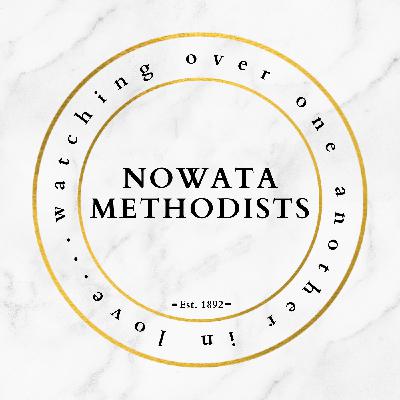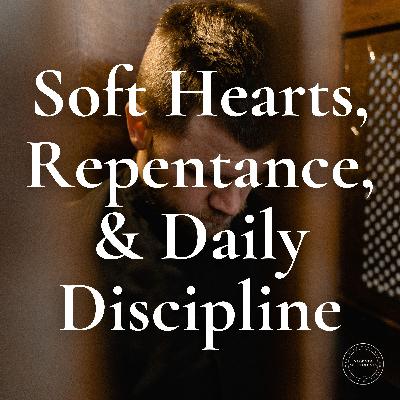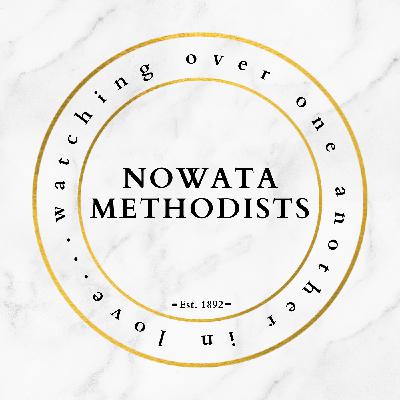On Maturing in Discipleship
Description
The Rickman Family is Reading!
Exciting times in the Rickman household lately. For much of my life, reading has been a great blessing. It is generally agreed in society that reading is a good thing to do, which is strange because from a certain point of view it is not at all practical. As Katie Oldham pointed out, it is the practice at looking at processed and marked slices of tree for hours, hallucinating vividly. It is engaging fully in the life of the mind. There are more- and less-worthy books to read, but the process of reading itself is of great benefit.
Higher literacy correlates with higher income, better critical thinking skills, more social mobility, better health outcomes, crime reduction, and it has many other salutary benefits. If a man wants his children to do well in life, one of the best things he can do for his children is ensure that they can read and enjoy doing it.
This wasn’t ever a problem for Susanna. Before she was two years old, she wanted to understand how those symbols corresponded with sounds. May I never forget when she drew the link between the ‘M’ on the Methodist Church sign outside this church building and the ‘m’ sound for “mama.” She put that together on her own and grew from there. Today she will disappear for a day at a time, fully invested in the world of a book.
Jesse was a different creature entirely. He has been a genius with rocks and sticks and blocks. Abstract stuff hasn’t had as much immediate allure for him. In fact, when dealing directly with ideas, abstractions, the world of values and beliefs, he has largely been insecure and reluctant to engage. We realized early on that we couldn’t push him to read with the same aggressiveness that we used with Susie. It was a gentle and inconsistent approach that eventually led to him learning his letters, but he learned them.
Clementine, for some reason, couldn’t even see the difference between the letters. She would gladly sit down to work with me on learning them, but she couldn’t retain anything. Anything. We would work on the same five letters for 15 minutes, and she wouldn’t know a single one of them. She would insist that she knew her letters, then we would sit down and start going through the flash cards. She would just guess. So confident, so clueless. Very sweet, but also quite sad. I worried that she was dyslexic. Then I just put it down. Sara Beth eventually picked it up with her, using a book that Melinda Bellatti gifted us, which didn’t focus on the names of the letters at all, but only the sounds they made. The two sat down and did close to 50 lessons out of the 100 offered by the book. After those many weeks, Clementine eventually started being able to string these things together. We rejoiced. The lessons ended.
Even after Jesse learned his letters, reading was still hard work. We got him started on the Dick and Jane books, which I also read when beginning. Rather than getting excited about being able to piece it together, the arduous work turned him off. We had to cajole him to engage. He insisted on reading, instead, the Bible. But that is at such a high reading level that he easily got tired and discouraged. Eventually we quit pushing for a season. Then a few months later, something changed. He picked up an easy book, read it midday, and finally enjoyed it. Now he is devouring the original Boxcar Children book series. He and his older sister ruminate together on developments in the storyline.
The really fun development of late is that Clementine is now plodding through the Dick and Jane books. She isn’t the natural that Susanna was, and she’s not resisting the way Jesse did. She’s just slowly doing the work. I sit with her for a few minutes to help her, but then Josiah or someone else needs me, so I call on Susanna or Jesse to sit next to her and help her.
Helping a child read isn’t as simple as just giving them the word they are struggling with. You can’t do that. They won’t learn. Rather, you are teaching them how to do it. How the letters generally behave in reference to one another. They have to sound it out. Then repeat and do it again. Put the words they have rendered in dialogue with the images shown on the page. Make sure they comprehend it.
Finally, after several years, the Rickman family has a reading machine built in, where an increasing number of members of the family are able to educate the newer ones in the practice. Each one of us who knows how to read can patiently and lovingly come alongside the younger ones and lead them to the next step. As each reads more refined materials, the older ones of us have now established a culture in which we engage and encourage one another forward. May the Lord bless this effort and use it for his glory!
The Household of God
The household of God, the Church, is much like this. There is a skill that we are collectively pursuing, which also has salutary impacts on the lives of those who learn. Namely, the skill, lifestyle, worldview of salvation. Christ has sent us his Spirit to guide us in the ways of righteousness. It is much bigger and more beautiful than the practice of reading. Wonderfully, it includes reading the Bible as an invaluable facet of the larger project.
Walking in the ways of Christ is very much like reading. It requires a large front-end investment. A great deal of time spent just familiarizing ourselves with very basic things. Stuff like prayer and fasting, stuff like learning what is in the Bible, how to talk about faith, how to practice hospitality, mindfulness, care of others. These are basic skills that are often quite boring and intimidating. But then, once one masters these different basic acts, one can then weave them together in a beautiful tapestry, a life of faith, that is a great love song to God. The task of sanctification before us was indeed accomplished in a single event on the cross in Christ, but in our lives it takes places gradually and continually until we die:
The Rub: Refusal to Work
Yet there have always been folks in the church who struggle to learn to practice the faith very well. From the beginning, the scriptures have warned us of the insufficiency of a stagnated spiritual life:
11 We have much to say about this, but it is hard to make it clear to you because you no longer try to understand. 12 In fact, though by this time you ought to be teachers, you need someone to teach you the elementary truths of God’s word all over again. You need milk, not solid food! 13 Anyone who lives on milk, being still an infant, is not acquainted with the teaching about righteousness. 14 But solid food is for the mature, who by constant use have trained themselves to distinguish good from evil. - Hebrews 5:11-14
The reality is that a person will never read Shakespeare, Moby Dick, the Odyssey, any of the classics, or any of the greatest thinkers, poets, writers of our day unless they first spend the time to learn their letters and then plod through simple and boring content like Dick and Jane. Paul wanted to write to his people about the life of faith, but he despaired that they just simply weren’t going to be able to go very far with him because they hadn’t put in the basic work.
One cannot build a house unless he learns carpentry. One cannot make a meal until he learns how to cook. One cannot run a marathon unless she has trained. This concept applies in any worthy field. One doesn’t just magically pick something up and instantly know how to do it. It takes painstaking practice, much time and energy spent in the pursuit of excellence.
Yet many don’t want to work. For many Christians today, it is like when Clementine would insist that she knew her letters, but we would sit down and get out the flashcards, and she knew nothing. She was surrounded by letters everywhere she went, but she didn’t know them for what they were. Similarly, many Christians come to the Christian place, they sing the Christian songs, they hear the hired Christian get up and talk, but they cannot really articulate much of anything serious about the faith. They know little more about it than someone who isn’t even a Christian. They cannot navigate their Bibles or tell you what they say. They cannot pray in their personal lives much less train others to do so. They cannot comprehend fasting, self-denial, self-control, or any practices that significantly depart from the culture around us in a profound way. They believe they are Christians every bit as much as Clementine believed she knew her letters, but they do not show basic competency with the fundamental units of the life. There are churches filled with people like this. And it isn’t just newer members, people recently converted. Sometimes adults go their entire lives, into old age, without mastering these basic skills and learning to build a life around them. I would actually say that this sort of dissonance is the norm in American churches today.
Paul expressed this frustration more than once. Not just in Hebrews, but also in his letters to Corinth, he is regularly frustrated at their reluctance to grow in maturity:
1 Brothers and sisters, I could not address you as people who live by the Spirit but as people who are still worldly—mere infants in Christ. 2 I gave you milk, not solid food, for you were not yet ready for it. Indeed, you are still not ready. 3 You are still worldly. - 1 Corinthians 3:1-3a
Discerning Maturity
That last phrase there is pretty key in distinguishing whether or not a person you’re dealing with is a mature Christian or not: Ca













